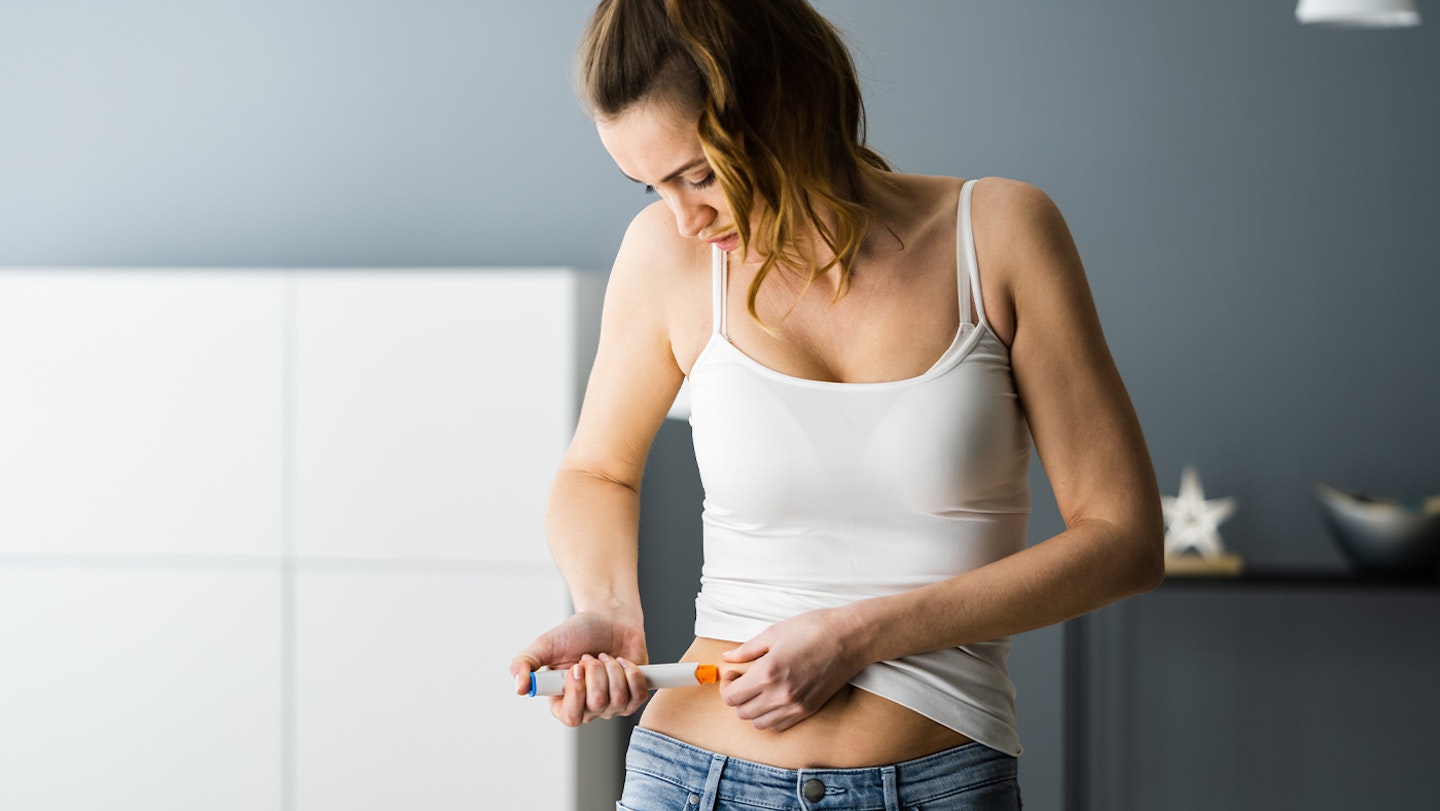You might be starting to think about the possibility of IVF if you've been trying to get pregnant through intercourse for quite some time with no luck.
Although the process of IVF is rather complex and a number of factors can impact its success, it's a path to parenthood that has worked for many, but it's important to do your research before embarking on your IVF journey as there's a lot to keep in mind.
If you're keen to learn more about IVF, from whether or not you're a suitable candidate for the procedure to what actually happens and how much it costs, we've rounded up everything you need to know from start to finish.
What is IVF?
The process of IVF or its full name of In vitro fertilisation is where an egg is removed from the ovaries and fertilised with the sperm in a lab to create an embryo. The embryo is then put into the womb to grow and develop.
Depending on your own personal situation, the egg and sperm will be from the intended parents or the egg and sperm can come from donors, which is often the case for same-sex couples or those who have a low egg or sperm count.
It's recommended by the National Institute for Health and Care Excellence that IVF should be offered to women under the age of 43 who have been trying to get pregnant for at least 2 years through unprotected sex. It's also an option for those who have tried at least 12 cycles of artificial insemination with at least 6 of these using IUI.
IVF is available on the NHS if you meet the above criteria, but ultimately, the decision is down to your local clinical commissioning groups whose rules may be a bit more strict depending on where you are in the UK.
If you aren't eligible for IVF treatment on the NHS, or you want to have the treatment carried out as soon as possible, there is the option to go private, but just be warned this can be rather expensive.
Why is IVF carried out?
If you've been trying to get pregnant for a number of years without conceiving, IVF could be an option for you to consider. Just keep in mind that if you're under the age of 40, IVF should be considered more of a last resort if you've tried all other avenues as it is a rather invasive treatment.
It's also worth considering IVF sooner in your fertile years if you have any of the below as these could all impact your chances of getting pregnant via intercourse.
-
Uterine fibroids
-
Fallopian tube damage or removal
-
Ovulation disorders
-
Low sperm count or poor sperm mobility
-
Genetic disorders
-
Fertility preservation for health reasons
-
Unexplained infertility
If you're having trouble getting pregnant, the first thing you should do is speak to your GP as there are a lot of other options other than IVF that may work for you.
What is the success rate of IVF?
There are a number of factors which affect how successful IVF treatment is, including the age of the patient as well as the causes of infertility.
Unsurprisingly, the younger you are, the more successful IVF is likely to be.
The NHS figures of healthy births after IVF from 2019 on women using their own eggs and their partners sperm help give you a better idea on how age can impact the success:
-
32% for women under 35
-
25% for women aged 35 to 37
-
19% for women aged 38 to 39
-
11% for women aged 40 to 42
-
5% for women aged 43 to 44
-
4% for women aged over 44
How much does IVF cost?
If you choose to go private, you will probably be looking at spending around at least £5,000 on the treatment depending on your local clinic.
Clinics usually charge per cycle, so if you need more than one or two attempts before the treatment is successful, the cost can quickly add up.
What are the risks of IVF?
As with any procedure, IVF comes with its risks which are important to be aware of before you go ahead with the treatment.
-
Ovarian hyperstimulation syndrome
-
Egg-retrieval procedure complications
-
Birth defects
How should you prepare for IVF?
The path to IVF can involve a lot of tests and screening for you and your partner. Some of the tests your health practitioner may want to carry out include:
-
Semen analysis
-
Egg testing
-
Uterine exam
-
Infectious disease screening
During these tests and the appointments leading up to the start of treatment, there are a few important questions you should ask, mostly around the embryos.
As mentioned in the risks, one of the main things to consider before trying IVF is the possibility of multiple pregnancies, and while twins or even triplets are a beautiful miracle, it's important to discuss the number of embryos that will be transferred with your doctor ahead of the procedure.
Any extra embryos that aren't transferred can be kept and frozen for the future which is great if you're hoping to have more children in years to come. It's a good idea to ask your doctor how long these embryos can be stored for as well as what your options are if you don't want to use them.
It might also be a good idea to seek some counselling to help you through the IVF process to keep your mental health in check. Not only can IVF be emotionally, physically and financially stressful, you may feel like you need to discuss some of the practicalities of IVF with a counsellor or someone you trust. This can help you get to terms with the possibility of being pregnant with twins or triplets and can also help you navigate the journey if you're using sperm or eggs from a donor or surrogate.
The stages of IVF
If you've done all your research, spoken to all the experts, asked all the important questions, been through all the tests and screenings and feel like IVF is still the option for you, the process will soon begin.

Step 1: Ovulation induction
First, you'll be given medication to suppress your menstrual cycle either with a daily injection or nasal spray that you'll be taught to give yourself.
You'll do this for two weeks until your natural cycle is suppressed, then you'll take the fertility hormone, follicle stimulating hormone (FSH), which works to increase the number of eggs your ovaries produce. This means there will be an increased number of embryos to choose from.
Step 2: Egg collection
Throughout the process, you'll be regularly monitored, and before your eggs are collected, you'll be given more hormones in the form of human chorionic gonadotrophin (hCG). These help your eggs to mature.
The process of collecting the eggs involves you being sedated while the eggs are collected using a needle that's passed through your vagina and into each ovary under ultrasound guidance.
This should only take 15 to 20 minutes and a small amount of bleeding is normal after the procedure.
Step 3: Sperm collection
At the same time as the eggs are being collected, your partner (if you're a heterosexual couple going through the IVF journey together) will be asked for a fresh sperm sample.
Once the sperm sample is ready, it will be washed and spun so that the healthiest sperm can be collected. If you're using donated sperm from a frozen sample, it'll be thawed and prepped in the same way.
Step 4: Fertilisation
The collected eggs and sperm are then mixed together in a lab to fertilise. The fertilised eggs are then left in the lab for 6 days before the best one or two embryos are placed into the womb to grow and develop.
Before the embryos are transferred to your womb, you'll be given hormones to prepare the lining of your womb for the embryo.
In some cases, instead of leaving the eggs and sperm to mix, each egg can be injected individually with a single sperm which is known as intra-cytoplasmic sperm injection or ICSI.
Step 5: Embryo transfer
The embryos are transferred into the womb using a catheter that's passed into your vagina and usually you won't need to be sedated for this process.
Aftercare

You'll be advised to wait around two weeks before taking a pregnancy test to see if the treatment has been successful.
Understandably, this can be a very difficult time, causing anxiety and stress while you wait. Make sure you take it easy these two weeks and be sure to take care of your own mental health.
If the test comes out positive, you'll begin your pregnancy journey and be invited for an ultrasound to make sure everything is developing as it should be.
If the news isn't so good, we've rounded up a number of support services to help you and your family through this tough period: Need to talk to someone? Here’s how to get help when you need it.
Popular articles to read next
Mum launches UK’s first-ever live IVF broadcast membership platform
Julia Bradbury: ‘I got my miracle twins after five rounds of IVF’
Watch: Izzy Judd talks about IVF, baby number two and her new book, Dare to Dream
